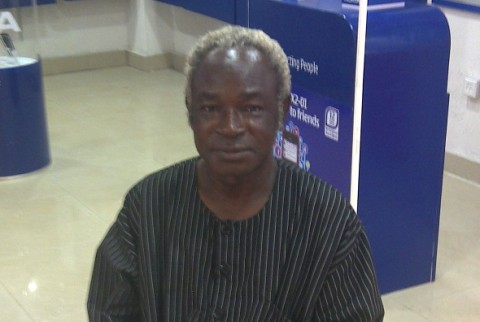Nigeria and its Socio-Political Women Component
Prof.R.A Ipinyomi Sunday, September 29th, 2013
By Prof. R.A. Ipinyomi, University of Ilorin, Nigeria
In Nigeria today, women-owned businesses is only beginning to rise. We do not have a nationally approved data to give the correct informed state of things on the subject but an unpublished university thesis has it that women own only about 25% of all businesses in Nigeria. Historically, women in Africa were less likely to own businesses or have positions of power in organizations because of societal gender views, such as financial institutions being less likely to grant loans to women, or employers believing women would eventually quit raising their families.
Similarly in politics women are still far away from a situation whereby women will begin to take their positions in politics alongside with the men. The most recent national census gave the impression that the population of men is slightly higher than women’s but the realities on ground is quite another. Women are more as voters and therefore potentially can determine many outcomes of any of our elections. Hence women could be said just waiting on the sideline to take advantage of their numbers in economy and in politics.
Our interest here is to assist the course of women to understanding their economic and political situations and possibly advance such to fulfilment sooner rather than later. The happenings in Europe, where a Margret Thatcher ruled her country for many years or an Angela in Germany that has just won a third term, could help the course of women in Nigeria.
The real point is that the men have badly led Nigeria economic and political life and it is now heading for a major disaster come 2015 elections unless there can be a transformed agenda that could project the whole exercise to a different destination. Nigeria politics is over heated by both the ruling party and the oppositions. Nigerians have failed to separate politics from money. The political power may be considered different from economic power. In Nigeria most of the so called rich men and even women can be traced to their holding political positions at one time or the other. Becoming rich in Nigeria is the same as winning elections or being appointed to political positions. This ought not to be the case. The moral standard for winning elections is far different from the moral standard of growing a business. Both require discipline and focus but to stay in politics requires additional discipline in ethics, consistency of ideology, adherence to sound politics and moral life, whereas in business there are almost no limits.
Women are particularly at the backseats in Nigeria because of the lower percentage of them that is educated than for men, marriage also keep them more at home raising children and religious beliefs. Due to increasing number of single parents in societies, advanced attainment in education by women and many families benefitting from extra incomes from women, it is becoming a necessity to have a second income from women rather than just luxury or choice. In Nigeria the women might just be less corrupt and more focused in politics or business than their men counterparts. This is one reason we may look to that direction.
Unfortunately it is only the women that can help themselves; these big boys around them would never surrender to them. Instead men are ready to call them any name or invent other names not already in the books to label women politicians and those in businesses. Women must also be aware of the fact that generally women dislike each other whereas men work and collaborate more within their gender. The position most women are starting from is also at a disadvantage.
The prevailing situation in Nigeria is that our economy is government salary based. Recently I went to a popular restaurant near University of Abuja mini Campus to have a lunch. It used to be so busy that one would wait for service and struggle for a chair but not on that faithful day. I asked why it was so free for me that day only to be told that ASUU strike is affecting Gwagwalada economy. University staff not paid for only August and September has its after effects on other economies dependent on it. Our economy should be so robust that a single activity of a small group like ASUU should have little overall economic effect on communities. Similarly many politicians from AD, ANPP and many others are now in PDP believing PDP to be a winning electoral machine. The jinks must be broken.
Hence the women would need to approach their businesses and political aspirations from informed decision bases. They would need to work assiduously hard and doggedly focused. They must never choose the path of men that are placing their trust on gun powers or many dollars chasing only after a few votes they consider matter. Each vote should matter and elections must be transparent, free and fair. The necessary background checks, grass root works, community organisation and policy formulation must be done to put them ahead of the men that always put their trust in money, ethnicity and religion.
The parents should come up to encourage and support the girl-child in all ramifications. After all we find that at least 25% of families have all girl-children and therefore have a role to push them up in economic empowerment. We have also discovered that given the same amount for children upkeeps the girl is more likely to have a saving from hers on the average. Women willing to generate investments or participate in public life would require understanding the decision they wish to take and the harsh and unfriendly environment. Nigeria economic and political future would be better placed if women participate much more. This is not a request asking government to allot a certain percentage for women, which is derogative on its own, but a request for each woman to work her way up the ladder on her own. In the past men would always put women they like in positions whether or not the women they appoint to positions truly represent their group or the aspiration of the nation.
Prof. R.A. Ipinyomi, ipinyomira@yahoo.co.uk or/and raipinyomi@unilorin.edu.ng
Related Posts
Short URL: https://www.africanexaminer.com/?p=1889






















